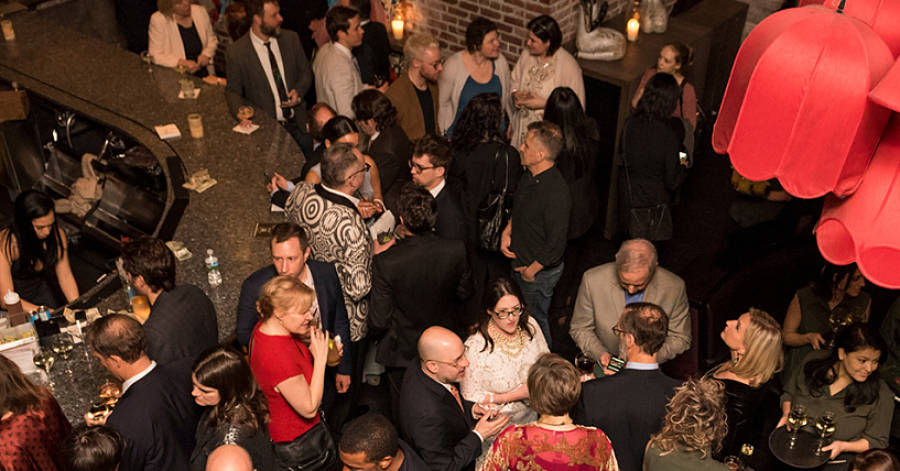During what has been called “the great intermission” of theatre, I have shifted my focus from producing and directing productions to activism and trying to reshape the industry so that the “second act” does not resemble the one we left. As I lead and participate in EDI workshops and anti-racist training where our focus is largely on changing policies and culture to be more inclusive, I have routinely been the only one to address the exclusion of those who are attempting sobriety or are in recovery. I am disregarded or told that matters of addiction do not belong in social justice work. But as I look back at my own sobriety journey as a mixed-race Latina, I am even more convinced that sober inclusivity is intrinsically linked to the necessary work of transforming the theater industry.
I remember once sitting in the circle with half a dozen other theatre artists for the start of-rehearsal check-in and being shocked when one actor began talking about being a recovering alcoholic. He spoke casually, with no regard for the stigma. He was not afraid of the possibility of being blacklisted or treated differently. I did not understand what made him feel safe enough to openly discuss his addiction. Maybe he felt safe because of his nearly 10 years of consecutive sobriety. I only had 10 days at the time. I was sure I would not receive the same level of acceptance with so few days of sobriety. I was convinced they would see my numerous relapses as failures instead of an important process of learning my triggers and discovering the tools needed to stay sober.
Or maybe he felt safe because he was a white man.
With my already limited opportunities as a Puerto Rican woman, I could not afford a reputation as a drunk or—as our president at the time referred to mi gente—one of those who is “unwilling to help themselves.” Or maybe it was because this particular theatre, one of my favorite places to work in Minneapolis, had actually cultivated a space where he could actually bring his whole self to work. Just maybe.
When it was my turn to check in, I started by sharing yet another racist experience I encountered at my full-time job at a predominantly white theatre. Then I impulsively blurted out that I also ate an entire pie for breakfast to avoid drowning myself in a bottle of whiskey. Then the next person checked in.
Very little changed among my working relationships after breaking my anonymity. During work meals there was some hesitancy and the occasional forgoing of drinking in front of me by my coworkers. Nobody gave me a hard time about not going out after rehearsals or leaving an event early. The artistic director frequently wanted to know how I was doing with a soft, concerned tone. I did not like the extra attention, but I was grateful for those small moments of grace from my colleagues, as early sobriety was brutal. In addition to the physical withdrawal and mental lethargy during the early months, I had to relearn how to function as a person again.
Paul Churchill, the host of my favorite recovery podcast, “Recovery Elevator,” calls the process of telling everyone in your social network that you’re sober “burning the ships.” There was no turning back once I publicly declared that I was a recovering alcoholic. I no longer had the option of ordering a drink during an event or stopping by a liquor store while on tour without creating cause for concern. This was especially important for me as a high functioning drunk who few would have suspected of being an alcoholic.
Burning the ships has also opened up a new network of sober theatre artists. When I speak openly about my sober journey, others do the same or seek advice or ask to help a friend or family member quit drinking. The accountability and community I receive as a result of not being anonymous about my sobriety has spared me many more destructive years of regret and shame, if not saved my life entirely. But as I look back at my early days of sobriety, I wish more would have changed around me. In a society that already organizes around alcohol consumption, the culture of theatre normalizes alcohol abuse. From the actors’ ritual shots in the dressing room, to the directors who insist on giving notes at the bar, to the opening night and closing night and performances between celebrations. Even professional development, where access is already restricted to those with hiring and decision making power, is centered around drinking. It can be hard to build a rapport outside of a bar with the often white male artistic director if you don’t have an instant “bromance” or cultural connection with him. And further damaging is the perpetuation of the romanticized notion of the tortured artist. It’s no wonder that arts and entertainment professionals are among those with the highest rates of drug and alcohol use in the country.
While Native Americans and mixed-race individuals have the highest rates of heavy drug use, whites are more likely than Blacks and Latinx people to use illegal substances—even as Blacks and Latinx folks are convicted at much higher rates for drug-related offenses. Of those incarcerated, 65 percent meet the criteria for addiction, but those with the easiest access to addiction support are whites, with 59.8 percent treatment program occupancy compared to Native American and mixed-race folks, at 2.3 percent occupancy. While addiction does not discriminate, it’s clear that Indigenous, Black, and other people of color are at greater risk of severe consequences for their addictions, and that the environmental factors of interpersonal and institutional racism, erasure, and white supremacy are major contributing factors to health disparities.

I tried to explain the environmental impact on me as a woman of color to my first sponsor, a queer white woman. At our first meeting together, she asked me to share moments that triggered a craving that day. I told her of the time I turned on the news first thing in the morning to see brown babies being separated from their parents at the border; the time the barista made a comment about my “exotic-sounding” name; the time a man refused to make space for me at the gym; the time a white woman in the locker room studied my hips like an anthropologist discovering a new race; the time the A.A. meeting started with a reading from the misogynistic Big Book; the time I was followed in my tinted-window Dodge Challenger on my way to work by a police car; the time my boss started the morning meeting by telling me to assist community engagement personnel on getting “the Hispanic community” to “buy-in”; the time I was talked over when I tried to correct him with “Latinx communities.”
Before I could get to the late morning examples, my sponsor cut me off. My sponsor told me that I needed to find methods of self-care and to develop better coping skills. She gave the example of driving and getting cut off by another car; instead of getting mad, she said, I should recognize that it is out of my control and give it no further attention. She told me that I needed to stop fixating on the minor stressors and just let go. But there is no “letting it go” or “leaving it at the door” for those of us whose oppression is embodied.
I am not making the argument that the combination of racism and sexism I experience is the cause for my alcoholism. I know there is a physical component. I inherited this disease. But the white-normative approach to recovery puts oppression in the “accept the things I cannot change” category. At the same time, we are indoctrinated in the practice of removing all temptation: Loved ones cannot bring alcohol into the home and I am not to set foot in a bar. These place my environment in the “change the things I can” category. And here’s the “wisdom to know the difference” part: People of color live and work in triggering, oppressive environments, and those can be changed.
Jeremy Cohen, the artistic director of Playwright’s Center in Minneapolis, along with several other prominent theatre artists, spoke up a few years ago in Amelia Merrill’s article “The Sober Reality for Theatremakers in Recovery,” listing ways they practice sober inclusivity, such as providing non-alcoholic beverages at events, notifying patrons in advance of the presence of alcohol, permitting schedule or meeting changes for recovery meetings, not having actors simulate drinking onstage unless it is absolutely necessary to the character or story, and not using real alcohol bottles as props. These great examples of individual practices could easily become fieldwide institutional policies.
Here are some other suggestions: Drug and alcohol policies that stipulate the right to terminate an employee who is under the influence at work could be expanded to offer support and encourage openness. In addition to equal employment, anti-harassment policies, and detailed parking instructions, new hire packets could include the Substance Abuse and Mental Health Services Administration’s national helpline, Alcoholics Anonymous meeting finder, SMART Recovery information, and other resources for those who may be struggling with addiction or seeking treatment. In addition to instructions on how to report drug and alcohol violations, personnel handbooks could include a breakdown of the legal rights of those in recovery as protected under the Americans with Disabilities Act.
Theatres could supply documentation to employees and artists on how their “open door policy” also applies to those in recovery. Employees and artists could receive simple training on how to address addiction and safely enact addiction onstage. Trigger warnings could be added to programs for shows that simulate substance abuse. It could be a policy to include an “optional additional information” section on audition forms for information actors would like to share. And it should absolutely be policy to provide French roast coffee and Razz-Cranberry LaCroix at all events (my non-alcoholic beverages of choice).
While these policy examples will help anyone in recovery, they are absolutely essential for Black, Indigenous, and people of color in recovery who get little to no reprieve or relief in a white-dominated society. Sobriety policies are an imperative contribution to anti-racist and social justice efforts. They are needed to reshape the working culture of theatre so that a person can genuinely bring their whole self to work—a place where someone can speak openly about their experiences with racism or sexism or addiction without fear of stigma or professional consequences. The social transformation of the theatre industry requires an intersectional approach and an uplifting of diverse experiences. And that absolutely includes sobriety.
AnaSofía Villanueva (she/her) is a producer, director, writer, and activist. She is currently the director of Creative & Civic Partnerships with Artists Repertory Theatre in Portland, Ore., and a creative producer for the Alliance of Latinx Minnesota Artists.


